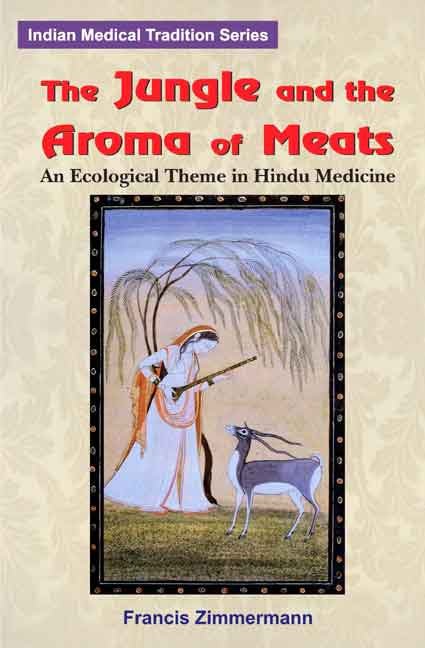The Jungle and the Aroma of Meats: An Ecological Theme in Hindu Medicine
![]() 100% Genuine New Books
100% Genuine New Books
![]() Fast Shipping with Tracking Number
Fast Shipping with Tracking Number
Secure Payments via UPI, Cards & Wallets
![]() Trusted Support & Easy Returns
Trusted Support & Easy Returns
The Jungle and the Aroma of Meats: An Ecological Theme in Hindu Medicine - Hardcover is backordered and will ship as soon as it is back in stock.
ISBN : 9788120816183, 8120816188
Year of Publication : 2011
Edition : 2nd
No. of Pages : 254
Language : English
Condition : New
Publisher: Motilal Banarsidass Publishing House
Free shipping on orders over Rs. 249
Free shipping on orders over Rs. 249
We offer free shipping on orders above Rs. 249 in India. For orders below this threshold, a nominal shipping fee may apply, which will be clearly indicated during the checkout process.
How long will it take to receive my order?
How long will it take to receive my order?
The delivery time varies depending on your location. Generally, orders are processed and shipped within 1-3 business days. Once shipped, you can track and expect your order to arrive within 3-7 business days (the duration may vary depending on your location). For more information, please refer to our shipping policy.
Chat with a Real Person
Chat with a Real Person
WhatsApp chat is dedicated to assisting with after-sales queries regarding delivery, returns, and payments. Click below to initiate chat with us on WhatsApp:
[Bookstaa WhatsApp Chat].
For all other inquiries, please visit our customer support page or email us at support@bookstaa.com.
Couldn't load pickup availability
Description
Description
The theory of humors, vital fluids whose proportions in the human body determine its health and temperament, is far from outdated. And what we sometimes think of as a modern concern with ecology and alternative medicine is really as old as the traditional medical techniques of the classical West of South Asia. It is to the latter that Francis Zimmermann turns his attention, in a remarkable evocation that combines Sanskrit studies and anthropology. He reconstructs and exposes the linkage between humors, persons, and soils in classical Hindu medicine. His work will interested those involved in the areas of medical anthropology, medical anthropology, medical history, philosophy of science, philosophy of language, and South Asian studies. It will also be valued for the vivid and accurate descriptions it offers of a few basic ideas our time has borrowed from Hindu culture: flower power, vegetarianism, non-violence, and the comic dimensions of the human body. In classical Ayurvedic medicine, a comprehensive view of the whole human person included the patient's humoral integration into the surrounding soil. The Jungle was the most crucial environment, and the Jungle was - and is - the dry land of the Punjab and the Delhi Doab, an open vegetation of thorny shrubs. The polarity of dry lands and wet lands framed not only the whole Ayurvedic materia medica but also the more general conception of a comic physiology governed by Agni (the sun) and Soma (the dispenser of rain). Clearing the land and draining the body were two aspects of one and the same art of managing the transactions of all sorts of vital fluids, saps, juices, savors, and humor. Medicine in the context of thought and practice associated with the Jungle was, and still in modern India, a kind of agriculture.
Review(s)
"No work on any of the hindu science compares with Zimmermann's in range, grasp, or implications... I count it among this century's most important intercultural achievements of scholarship. Zimmermann writes precisely and gracefully, sometimes with deli
About the Publisher

Motilal Banarsidass Publishing House (MLBD)
Motilal Banarsidass Publishing House, popularly known as MLBD, is one of the oldest and most prestigious publishing houses in India, established in 1903.
With over a century of legacy, MLBD has been at the forefront of publishing scholarly works in the fields of Indology, Sanskrit, philosophy, religion, spirituality, yoga, Buddhism, and Jainism.
Renowned for its authenticity and academic rigour, MLBD's books are trusted by researchers, scholars, and readers across the globe.
With more than 5,000 titles in circulation, MLBD continues to uphold its commitment to preserving and promoting India’s rich cultural and philosophical heritage.
Bookstaa is an authorized distributor of MLBD books, ensuring 100% genuine and original publications for our readers.

